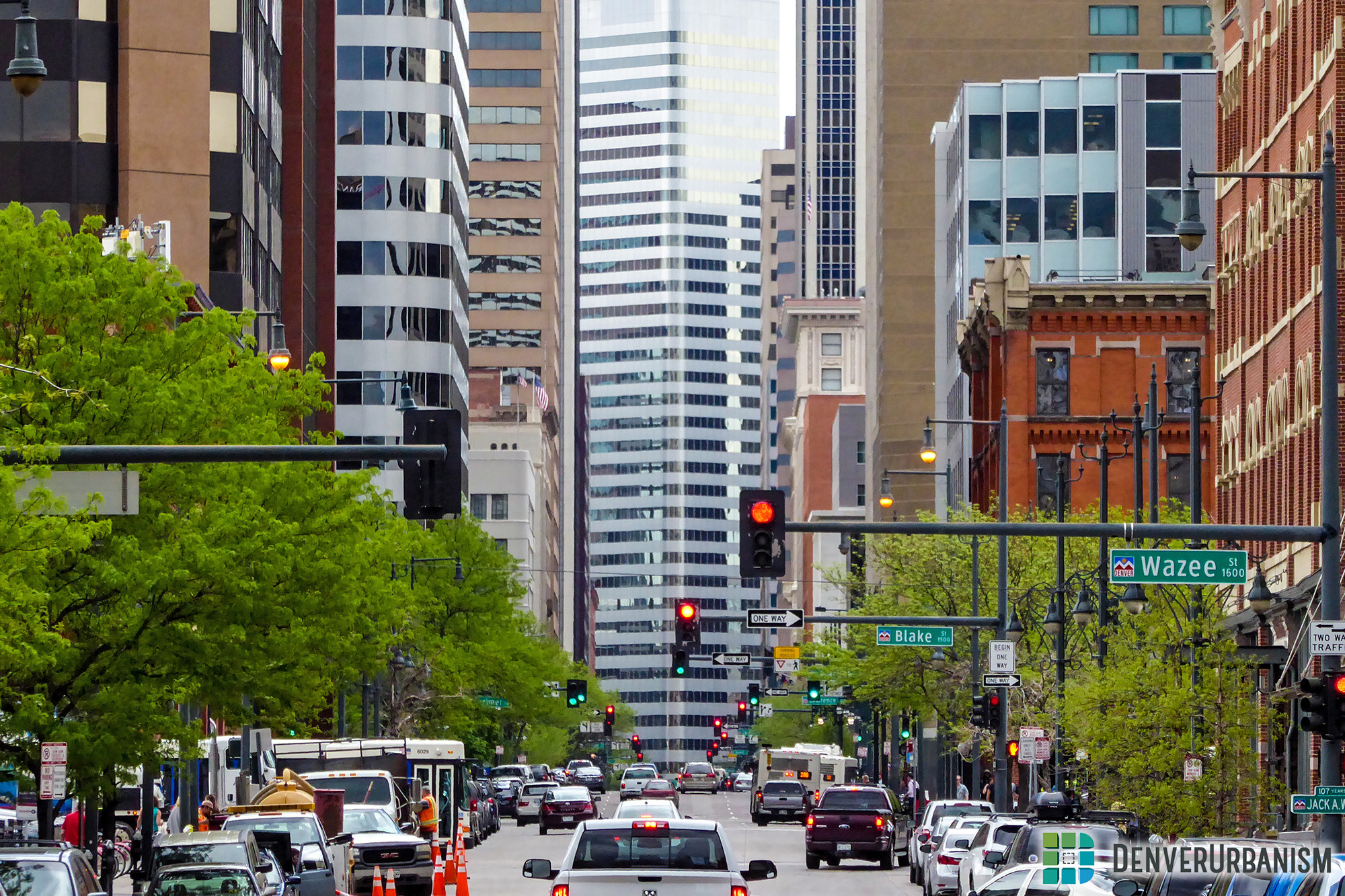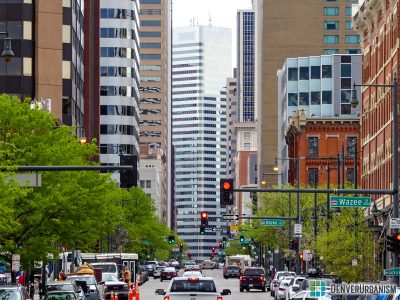Life is the story we tell ourselves. This is why you can hear stories about people in the worst circumstances with the best attitudes and people who you would think should be pleased beyond their wildest dreams being miserable and on meds.
This of course means that the story of our city is also made up. It’s a collective agreement about what’s important to us, on how we got to where we are now, and on where we should go next. It’s hard sometimes when people don’t agree on how the story should go—arguments occur not only over the meaning of certain history but sometimes over the history itself. Sometimes we forget what happened. Sometimes we choose to forget. Sometimes we simply misinterpret.
It made me think about our recent decision to put a moratorium on allowing small lots to be redeveloped without providing any parking spaces. The exception was originally intended to allow the rehabilitation of buildings on lots too small to make parking economical. Since the exception was put into place, the city has seen dramatic growth and some developers saw an opportunity to build dense housing on these small lots that wouldn’t otherwise be possible. The moratorium was enacted in order to review and fix the problem.
And that’s where the story begins. We’ve told ourselves that allowing housing without parking is a problem that needs to be fixed. We’ve told ourselves that Denver has always been a city where a car is required and will never be New York so we shouldn’t allow it. We’ve told ourselves that the exception was never intended to be used that way (which is true) and we’ve also told ourselves that the dramatic changes we’ve seen in our city don’t or shouldn’t change the story of our need for parking.
But like I said, these are all stories. We can tell ourselves that we need more parking or we can tell ourselves that we have way too much parking. We can tell ourselves that the city will never be dense enough to make living without a car possible or we can tell ourselves that making the city dense enough to make living without a car possible is imperative and start building as though it is. We can tell ourselves that it was never meant to be done this way or we can tell ourselves that creative developers have figured out how to solve some small part of our housing problem for us.
I’m telling myself to look for the opportunities instead of the threats. What are you telling yourself?












I am a board member of one of the many RNO’s that supported the moratorium. Our group agrees that Denver is a place where people can very well get around without a car, in fact at least one of our board members shed their automobile several years ago. The concern for the group that started the moratorium and at least for us in supporting it was that the developer insisted people living in this building would not have cars and that there would be no impact on the neighborhood. When you look at microhousing now available in Denver, this is simply not the case. People do still have vehicles and our concern was the impact on an area already short on parking. I anticipate developments like this will go forward, however the areas should be studied and the impact considered of a large number of people living in a small space is mitigated. For example moving to residential permit parking in the area but not providing permits to those living in these new developments. This is just an example, but the kind of thing the task force is now discussing. In addition, this development had no plans to provide bike parking for its residents. Where does one store a bicycle in a <500 square foot apartment?
I think this is a great conversation for Denver to be having and I do believe that as our infrastructure continues to improve we will become, more and more, a city where people can get by without owning a car.
This idea of denying cars to owners of micro units is disturbing. Why should a micro unit owner be denied a car just so you can have easier street parking – something to which you have no right to begin with? Share the street or move to a less crowded neighborhood.
I’m all for parking permits for residents, but at a cost. If parking is so valuable to everyone, why do they expect it to be free? We as residents should not be expected to subsidize car storage for people on the public right of way. And you say one idea being considered are permits for current residents but not for the new apartments. Why, if those residents are paying property tax (through rent), would you deny them the say access to your free parking? And would you also limit anyone who moves into the neighborhood after this is enacted? Anyone who adds a car to their inventory (maybe for a child that is now of driving age)?
I think a limited number of permits should be issued for a fee of maybe $50 a month. Then, once people understand that actually cost of parking, they might consider finding alternatives.
One final point. In the meetings I attended, the developer never insisted that his residents would not have cars. He simply suggested that the development is designed for people without cars, and marketed as an option for car-free living.
You may think that this is a completely reasonable and fair argument, but it’s not. You may also think that you’re not hurting anyone by protecting your “rights”, but you are. In fact, this position is shortsighted, selfish, and damaging to the metro as a whole.
This attitude assumes that neighborhoods don’t/won’t/shouldn’t change because the local majority wills it. Believe it or not, your neighborhood is part of a bigger city, which is part of a vast urban region. By slowing infill construction in such a high demand climate, you reduce available housing stock and drive up home prices regionally. You also push people out of the city and into “easy-to-develop-in-large-quantities” suburban subdivisions. The result is loss of arable green land, increased area traffic, and pollution. Someone that wanted to live close to work and ditch the car, now has to live farther out and drive in to town. It’s nice to hear that one of the RNO members was able to ditch the car, but it’s deplorable that they are working to deny potential future neighbors of the same opportunity. That future neighbor could have contributed to the vibrancy of your neighborhood, but instead, is a 9-5 commuter.
Furthermore, I wholeheartedly believe that “we need to study it” is just another NIMBY tactic to delay any and all development. Sadly, it’s just become one of a dozen or so tactics, and is abundantly transparent. I refuse to believe that Denver has been reduced to a collection of self-interested RNOs. We’re better than that.
“Slow down, you move too fast.
You got to make the morning last.”
….
Hello lamppost,
What cha knowing?
I’ve come to watch your flowers growing.
(Paul Simon)
Couple of things:
If cars are indeed unnecessary then the “fix” should be easy. Require apartment building owners to lease to tenants without cars.
2nd it should be obvious that such projects (like a 100 micro-units) may be totally appropriate in some locations while wholly inappropriate in other locations.
Why should an owner of a micro unit have any less right to own a car than the owner of the house or condo next to him? Because street parking is crowded? Why should the owner of the house next door expect rights in perpetuity to street parking without “interference” from new neighbors moving into the hood? That’s a childish “I’ve got mine” attitude and is no way to build a city, not to mention the fact that everyone has equal access to the street. It’s not yours just because you lived there first.
Try reading more closely. I said nothing about the rights of the landlord to own a vehicle; I spoke to his ability to rent to individuals with cars. It goes to the argument that having parking isn’t necessary since lots of people don’t want to own cars.
It’s no wonder that people who have lived for years and care about their neighborhood are wary. There are too many people that don’t give a damn about them or the neighborhood. Have you ever even lived in a neighborhood where people shovel the walks for seniors, watch out after the kids, have a community garden? Do you have any concept of what a neighborhood is?
Actually I lived in just such a neighborhood for five years. I knew my neighbors, talked to their multitude of kids, helped organize the annual picnic, and attended the Friday night potluck in the park every Friday during the summer. I admit I wasn’t a “snow angel” shoveling walks for seniors but I did know the woman who ran the program. There was tons of very intentional community in that neighborhood and it was the better for it. You know what though, none of the things you or I mentioned require parking in any way shape or form.
Wow, excellent and thought provoking way of tying in a life lesson to a conflict like this.
I’m telling myself that over the next 15 years, Denver (and many cities alike) will indeed be places where it is very plausible to live without personal automobiles.
Thanks for the high quality read!
My thoughts exactly!
Great article Jon. It’s all about perspective after all…
I’m telling myself I picked a bad day to give up drinking
I love these bite-sized conversation starters. Thanks, John!
The reality is that we have all gotten used to living in a world of excess. A world in which “the norm” is simply unsustainable. Metropolitan cities are experiencing the devastating effects of 1950’s suburban ideals. What we are coming to understand as an urbanizing society, an understanding that has long been hearkened by environmentalists like Rachel Carson and many others of a feather, is that the “Suburban American Dream” is creating a nightmare. The global population has more than tripled since the 1950’s, yet we are developing our lives around the same platform. I am not here to say that micro housing is the answer, but it is a step in the right direction. Someday, we will all need to change our perception of “what is right” if we truly intend to create a lasting urban environment. If not…the planet will change our perception for us.